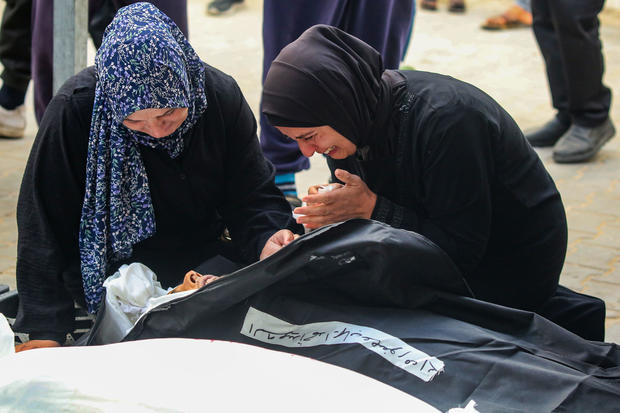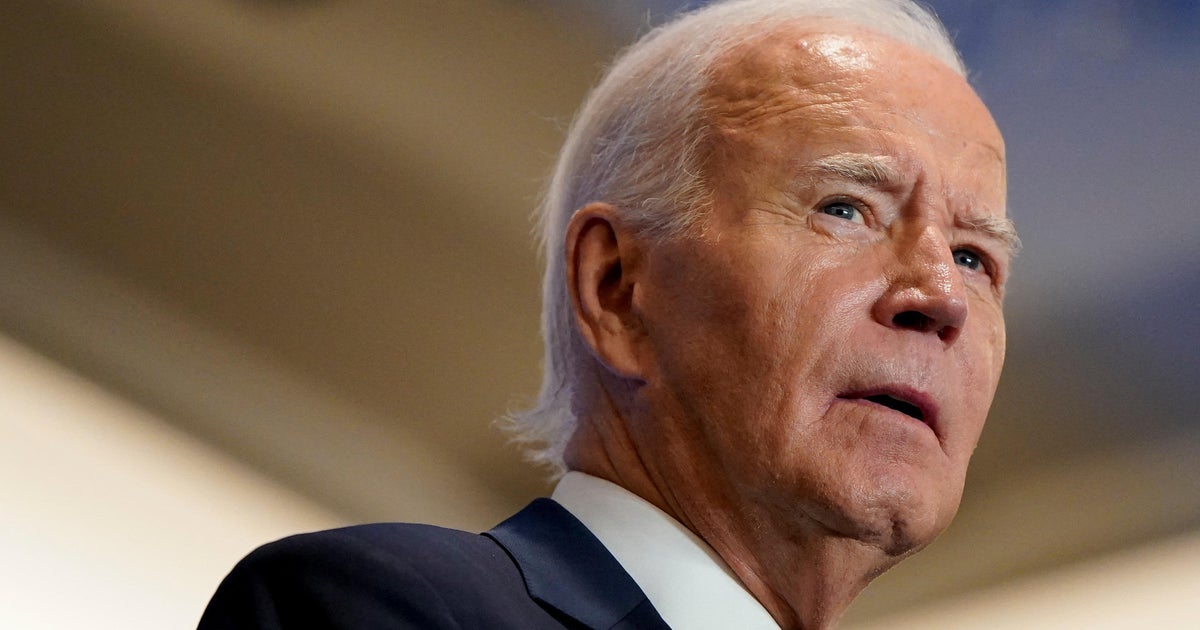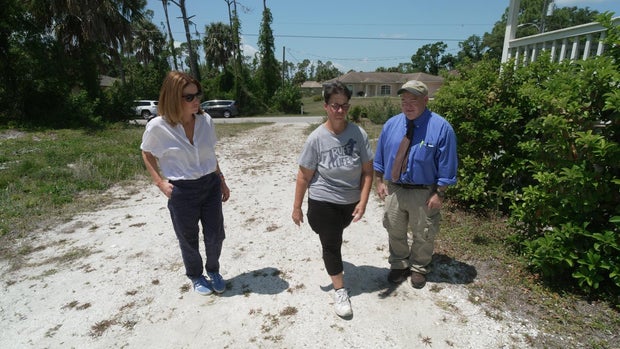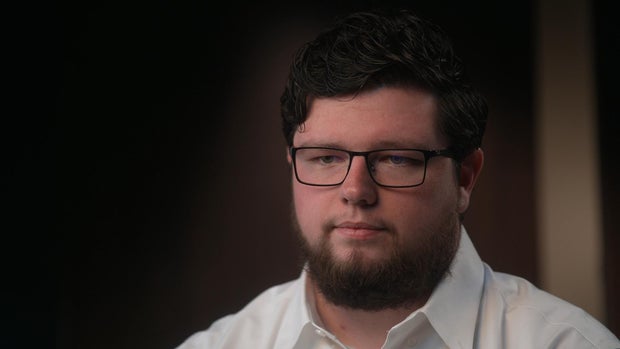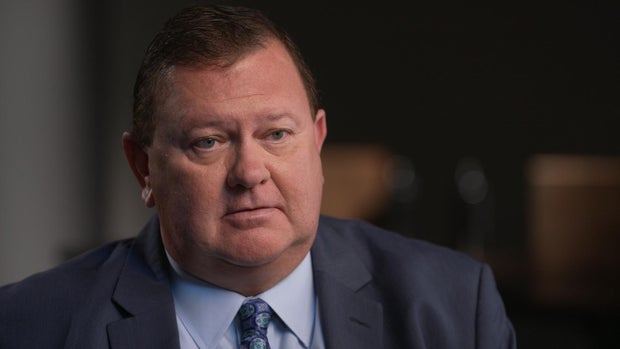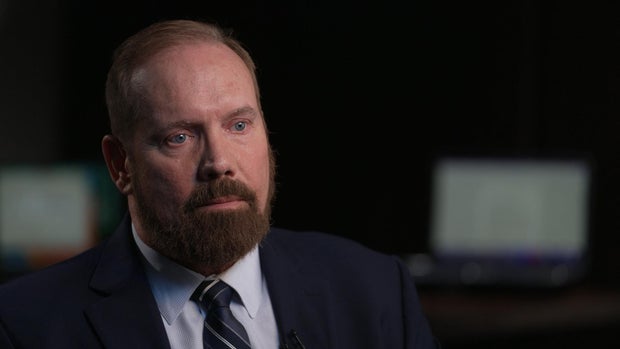CBS News
Tens of thousands of Israelis stage largest protest since war began as pressure on Netanyahu mounts
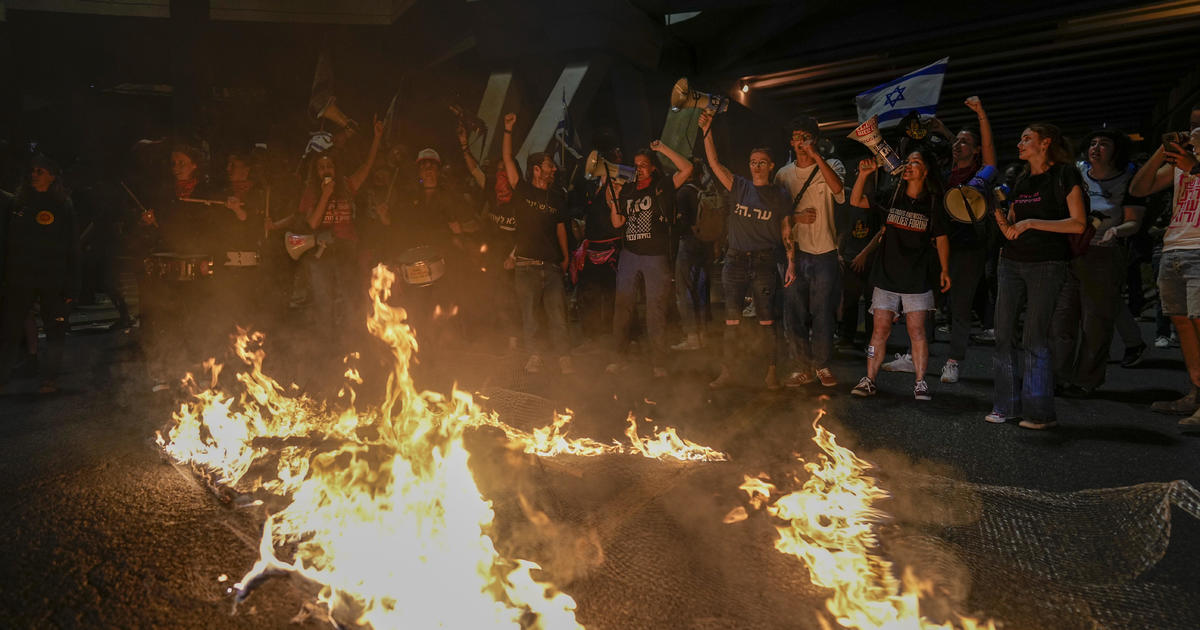
Tens of thousands of Israelis thronged central Jerusalem on Sunday in the largest anti-government protest since the country went to war in October. Protesters urged the government to reach a cease-fire deal to free dozens of hostages held in Gaza by Hamas militants and to hold early elections.
In Jerusalem outside of Israel’s parliament, some called for the removal of Prime Minister Benjamin Netanyahu, and many said they want the government to do more to bring the remaining hostages home, CBS News correspondent Holly Williams reported.
“This government is doing horrendous things in Gaza, not in our name, and we want the government to take responsibility and resign today, right now,” protester Karen Saar told Williams.
Ohad Zwigenberg / AP
Israeli society was broadly united immediately after Oct. 7, when Hamas killed some 1,200 people during a cross-border attack and took 250 others hostage. Nearly six months of conflict have renewed divisions over the leadership of Netanyahu, though the country remains largely in favor of the war.
Netanyahu has vowed to destroy Hamas and bring all the hostages home, yet those goals have been elusive. While Hamas has suffered heavy losses, it remains intact.
Basem Naim, head of international relations for the militant group, told Williams that he thinks Hamas was won the public relations war – despite the huge death toll.
“We have a lot of sympathy, a lot of support,” he told Williams. “Israel has been exposed clearly as an apartheid state. They are killers.”
“Netanyahu is only working in his private interests”
Roughly half the hostages in Gaza were released during a weeklong cease-fire in November. But attempts by international mediators to bring home the remaining hostages have failed. Talks resumed on Sunday with no signs that a breakthrough was imminent.
Hostages’ families believe time is running out, and they are getting more vocal about their displeasure with Netanyahu.
“We believe that no hostages will come back with this government because they’re busy putting sticks in the wheels of negotiations for the hostages,” said Boaz Atzili, whose cousin, Aviv Atzili and his wife, Liat, were kidnapped on Oct. 7. Liat was released but Aviv was killed, and his body is in Gaza. “Netanyahu is only working in his private interests.”
Protesters blame Netanyahu for the failures of Oct. 7 and say the deep political divisions over his attempted judicial overhaul last year weakened Israel ahead of the attack. Some accuse him of damaging relations with the United States, Israel’s most important ally.
Netanyahu is also facing a litany of corruption charges which are slowly making their way through the courts, and critics say his decisions appear to be focused on political survival over the national interest. Opinion polls show Netanyahu and his coalition trailing far behind their rivals if elections were held today.
Unless his governing coalition falls apart sooner, Netanyahu won’t face elections until spring of 2026.
Many families of hostages had refrained from publicly denouncing Netanyahu to avoid antagonizing the leadership and making the hostages’ plight a political issue. But as their anger grows, some now want to change course – and they played a major role in Sunday’s anti-government protest.
The crowd on Sunday stretched for blocks around the Knesset, or parliament building, and organizers vowed to continue the demonstration for several days. They urged the government to hold new elections nearly two years ahead of schedule. Thousands also demonstrated Sunday in Tel Aviv, where there was a large protest the night before.
Netanyahu, in a nationally televised speech before undergoing hernia surgery later Sunday, said he understood families’ pain. But he said calling new elections – in what he described as a moment before victory – would paralyze Israel for six to eight months and stall the hostage talks. For now, Netanyahu’s governing coalition appears to remain firmly intact.
Some hostage families agree that now is not the time for elections.
“I don’t think that changing the prime minister now is what will advance and help my son to come home,” Sheli Shem Tov, whose son Omer was kidnapped from a music festival, told Israel’s Channel 12. “To go to elections now will just push to the side the most burning issue, which is to return the hostages home.”
“No victory without going into Rafah”
In his Sunday address, Netanyahu also repeated his vow for a military ground offensive in Rafah, the southern Gaza city where more than half of territory’s population of 2.3 million now shelters after fleeing fighting elsewhere. “There is no victory without going into Rafah,” he said, adding that U.S. pressure would not deter him. Israel’s military says Hamas battalions remain there.
A U.S. official confirmed to CBS News that U.S. and Israeli officials will meet virtually Monday to continue discussions on Rafah. The U.S. expects followup meetings in person after work by the expert teams.
Ahmad Hasaballah/Getty
In another reminder of Israel’s divisions, a group of reservists and retired officers demonstrated in an ultra-Orthodox neighborhood.
Ultra-Orthodox men for generations have received exemptions from military service, which is compulsory for most Jewish men and women. Resentment over that has deepened during the war. Netanyahu’s government has been ordered to present a new plan for a more equitable draft law by Monday.
Netanyahu, who relies heavily on the support of ultra-Orthodox parties, last week asked for an extension.
The Bank of Israel said in its annual report on Sunday that there could be economic damage if large numbers of ultra-Orthodox men continue not to serve in Israel’s military.
Also Sunday, an Israeli airstrike hit a tent camp in the courtyard of a crowded hospital in central Gaza, killing two Palestinians and wounding another 15, including journalists working nearby.
An Associated Press reporter filmed the strike and aftermath at Al-Aqsa Martyrs Hospital in Deir al-Balah, where thousands of people have sheltered. The Israeli military said it struck a command center of the Islamic Jihad militant group.
Tens of thousands of people have sought shelter in Gaza’s hospitals, viewing them as relatively safe from airstrikes. Israel accuses Hamas and other militants of operating in and around medical facilities, which Gaza’s health officials deny.
Israeli troops have been raiding Shifa Hospital, Gaza’s largest, for nearly two weeks and say they have killed scores of fighters, including senior Hamas operatives. Gaza’s Health Ministry said more than 100 patients remain with no potable water and septic wounds, while doctors use plastic bags for gloves.
Not far from Shifa Hospital in Gaza City, dozens of members of Gaza’s tiny Palestinian Christian community gathered at the Holy Family Church to celebrate Easter, with incense wafting through the rare building that appeared untouched by war.
“We are here with sadness,” attendee Winnie Tarazi said. About 600 people shelter in the compound.
The United Nations and partners warn that famine could occur in devastated, largely isolated northern Gaza. Humanitarian officials say deliveries by sea and air are not enough and that Israel must allow far more aid by road. Egypt has said thousands of trucks are waiting.
Israel says it places no limits on deliveries of humanitarian aid. It has blamed the U.N. and other international agencies for the failure to distribute more aid.
Gaza’s Health Ministry said Sunday that at least 32,782 Palestinians have been killed since the start of the war. The ministry’s count does not differentiate between civilians and fighters, but it has said that women and children make up around two-thirds of those killed.
Israel says over one-third of the dead are militants, though it has not provided evidence, and it blames Hamas for civilian casualties because the group operates in residential areas.
Amid concerns about a wider conflict in the region, Lebanese state media reported that an Israeli drone struck a car in the southern Lebanese town of Konin.
A Lebanese security official told The Associated Press that Hezbollah militant Ismail al-Zain was killed, speaking on condition of anonymity in line with regulations. Israel’s military called al-Zain a “significant commander.” Hezbollah confirmed the death.
Late Sunday, a Palestinian attacker stabbed three people in southern Israel, seriously wounding them, said the Hatzalah rescue service. Police said the attacker was shot, but gave no further details on his condition.
CBS News
The assassin critical to the Russian prisoner swap | 60 Minutes

Lengthy, complex diplomatic talks leading up to the largest prisoner exchange since the Cold War came down to one sticking point: Russian President Vladimir Putin wanted the release of notorious assassin Vadim Krasikov, who had been convicted of murder in Germany.
The negotiations ahead of the August deal were more than a year in the making. They began over Americans held by Putin, but over the months, the deal grew to involve Russian dissidents. National Security Adviser Jake Sullivan, who was at the center of negotiations, said German Chancellor Olaf Scholz was critical to the deal.
“Without him, this would not have happened. Because a central piece of the puzzle was the release of a Russian agent named Vadim Krasikov. Without Krasikov, there is no deal,” Sullivan said.
Who is Vadim Krasikov?
Krasikov was convicted in 2021 of the 2019 murder of Zelimkhan “Tornike” Khangoshvili, a Georgian citizen of Chechen descent in Berlin. Khangoshvili was a Chechen rebel who had fought Russian troops in Chechnya.
Krasikov was sentenced to life in prison in Germany.
In November 2023, Russia rejected a different prisoner swap offer, saying that Krasikov must be part of any trade.
Making the 2024 prisoner swap with Russia happen
Sullivan knew a deal wouldn’t happen overnight.
“None of it’s straightforward. There’s going to be twists and turns. There’s going to be false starts,” he said. “Persistence, relentlessness, that’s part of the name of the game of actually securing the release of these Americans.”
Sullivan said Scholz’s dilemma was being able to look his people in the eye and say, “We are releasing someone who has committed a grievous crime on German soil. And therefore, I can deliver something for the people of Germany.”
So the deal was broadened.
“That’s why we ended up thinking through enlarging the problem, not just trying to bring out Americans, but of course bring out some German citizens as well,” Sullivan said. “And then, the critical move of being able to say to the German people, the American people, and the world, ‘We are also getting Russian Freedom Fighters out,’ including people like Vladimir Kara-Murza.”
60 Minutes
Scholz said his long friendship with President Biden influenced his decision to release Krasikov.
“It is not an easy decision. And I discussed it with many people in my government, and especially with Joe Biden, who asked me to help,” Scholz said. “And my view was that this is something which we could do.”
Sullivan remembers the moment Scholz said he would try to make a deal.
“He said, and I remember it very vividly, on the phone with President Biden, ‘For you, Joe, I will do this,'” Sullivan said.
Prisoners released
On Aug. 1, eight convicted Russian criminals and spies were traded for several Germans, three Americans and eight Russian dissidents, including Putin critic Kara-Murza, who’d been sentenced to 25 years in Russia.
“You know, it’s one thing to speak about protecting freedom or protecting human rights,” Kara-Murza said, “but it’s quite another thing to actually do something to protect them. And whatever else President Biden and Chancellor Scholz will be remembered for years from now, they will be remembered for this.”
60 Minutes
Kara-Murza told 60 Minutes he quoted Jewish scripture to Scholz after his release: “He who saves one life saves the entire world.”
“It was very nice to hear it, to be very honest with you,” Scholz said. “On the other hand, I don’t feel that great. I did what I thought is the right thing to do.”
CBS News
Caitlin Clark’s logo 3: Fever player breaks down her signature shot

Watch CBS News
Be the first to know
Get browser notifications for breaking news, live events, and exclusive reporting.
CBS News
Whistleblowers claim insurance companies shortchanged some Florida homeowners after Hurricane Ian

On Thursday night, Hurricane Helene and its 140 mile an hour winds made landfall in Florida’s Big Bend region. It was deadly. The full extent of the damage won’t be known for weeks and residents know rebuilding after the storm is likely to be as daunting as the storm itself.
It’s been two years since Hurricane Ian hit Southwest Florida and an estimated 50 thousand homeowners are still locked in battles with their insurance companies. Tonight, you will hear from insurance insiders who say after years of diligently paying premiums, homeowners are being misled by their insurance carriers. The whistleblowers, who are all licensed adjusters, tell us after Hurricane Ian, several insurance carriers were using altered damage reports to deceive customers.
As Hurricane Ian slammed into Florida with 150 mile an hour winds, Jeff Rapkin took this video from the porch of his home… about 40 miles south of Sarasota.
Jeff Rapkin: (on recording): “All the trees are coming down… they don’t normally look like this, everything’s coming apart… My name is Jeff Rapkin, I live in North Port, Florida…”
Rapkin, an adoption attorney and his wife, Ginny, raised three children in this home and weathered more than a half dozen hurricanes inside it. But Ian, they say, was different.
Jeff Rapkin: It just– it sat above our heads. It wouldn’t move. I mean, it was a nightmare.
Sharyn Alfonsi: And it went on for how long?
Jeff Rapkin: Eleven hours.
Sharyn Alfonsi: Eleven hours.
Jeff Rapkin: It felt like the hurricane was inside the house. We couldn’t keep the windows closed.
60 Minutes
That is the Rapkin’s house. A neighbor just happened to be filming when their steel roof was ripped off. When the storm finally passed, the Rapkins could see clear skies through the new hole Hurricane Ian punched in their ceiling. There were trees on and around their house, the roof was shredded, and everything inside was soaked.
The Rapkins lined up their losses on the curb and called their insurance company, Heritage, to begin the claims process. It sent a licensed adjuster to the house to assess the damage.
Sharyn Alfonsi: Did you get the feeling, speaking to him and showing him around the property, that he understood —
Virginia Rapkin: Oh yeah.
Jeff Rapkin: Yeah.
Sharyn Alfonsi: — what was happening here, that this —
Virginia Rapkin: Oh yeah.
Sharyn Alfonsi: — was serious?
Jeff Rapkin: He was really nice. He was thorough and he said, “your house is probably gonna need to be completely rebuilt.”
Which is why the Rapkins were floored when they finally got a check from their insurance company three months later.
Jeff Rapkin: They sent us a report from the adjustor which said that it would cost $15,000 to put our home back to pre-hurricane conditions.
Sharyn Alfonsi: They sent you $15,000?
Jeff Rapkin: $15,000. And so– the– the deductible was taken out, so it was $10,000 dollars. And then our public adjuster took $1,000 out, so we had $9.
Sharyn Alfonsi: When you called and said, “$9,000? Are you kidding me?” What was the reaction?
Jeff Rapkin: The reaction was– “This is the decision we’ve made.” And I started to pray for– for Mr.– Jordan Lee’s untimely demise because I was so angry.
We found Mr. Jordan Lee… very much alive.
60 Minutes
Sharyn Alfonsi: Do you remember the Rapkin family?
Jordan Lee: Yes, ma’am.
Lee is the adjuster who went to the Rapkin’s home after the storm.
Sharyn Alfonsi: What do you remember about them?
Jordan Lee: Their property, a two-story home, metal roof that was blown off by Hurricane Ian. And the interior of the home was just– it was soaked.
Jordan Lee has been a licensed adjuster in Florida since 2017. After major disasters, most insurance companies use third-party firms who hire adjusters, like Lee, to help them with the thousands of claims.
Lee says after he assesses a home, he always leaves his cellphone number with the homeowners so they can call him if they have any questions. After Hurricane Ian, homeowners did.
Sharyn Alfonsi: What were they sayin’?
Jordan Lee: Cussin’ me out left and right, up and down. You know, “how could you do this to us?” It was really bad, actually. And out of the– the– thousands of claims that I’ve handled, I’ve never had phone calls like that.
Confused, he went back to compare the damage report he wrote for the Rapkins to the one the insurance company sent to them.
Sharyn Alfonsi: That’s your work?
Jordan Lee: Correct.
Sharyn Alfonsi: And this is what they were given?
Jordan Lee: Totally different. Totally different.
Sharyn Alfonsi: You said they needed a new roof.
Jordan Lee: I did.
Sharyn Alfonsi: And this report says what?
Jordan Lee: It reads as a repair.
Sharyn Alfonsi: Was that roof able to be repaired in your opinion?
Jordan Lee: Not in my opinion, no.
Later, Jordan Lee learned a desk adjuster – who’d never been to the Rapkin’s home – had deleted entire sections of his report… but left his name and his license number on it – making it look like his work.
Sharyn Alfonsi: Did anybody ever alert you, “Hey, we’re making a change to this report”?
Jordan Lee: No. Nobody told me. The only way that I knew was the homeowner calling me.
It is standard procedure for field adjusters to collaborate with those back in the office to make minor edits. But Jordan Lee says, that is not what happened with the Rapkin’s report.
Sharyn Alfonsi: Did you put a dollar amount on how much you thought they were owed?
Jordan Lee: $231,368.57.
Sharyn Alfonsi: What did the insurance carrier come up with?
Jordan Lee: $15,469.48. So uh, quite a bit of difference.
Sharyn Alfonsi: Mmm. That’s not a difference of opinion.
Jordan Lee: No.
Jordan Lee says as he dug further into his work from Hurricane Ian… he was stunned to discover the Rapkins weren’t the only family whose report was altered.
Jordan Lee: It was basically all of ’em. I mean, I handled 46 of them. 44 of them were changed.
Sharyn Alfonsi: Were any of your reports changed to give the policy owner more money?
Jordan Lee: No.
Sharyn Alfonsi: It was always down?
Jordan Lee: It was always down.
Down… by as much as 98%. One estimate he wrote for $488 thousand was changed to $13 thousand. another, from 239 to 3 thousand. On December 13th, 2022…
Jordan Lee (at hearing): “My name is Jordan Lee. I’m an independent insurance adjuster and I work for the insurance companies.”
Jordan Lee and two other adjusters testified to Florida lawmakers about what one watchdog group called “systematic criminal fraud” by the insurance companies.
Ben Mandell (at hearing): “The scheme was repeated over and over again, not only on my estimates but on estimates written by other adjustors.”
Ben Mandell has been a licensed adjuster since 2017. He did not work for Heritage but says 18 of the 20 reports he wrote for another carrier after Hurricane Ian were altered. And he says he, and other adjusters, were instructed by some of their managers to leave damage off reports.
Ben Mandell: It was a deliberate scheme to do this. And it wasn’t just with one carrier doin’ this. This was six carriers that we discovered were doing this in the State of Florida, they all got the memo.
Sharyn Alfonsi: Which was?
Ben Mandell: Which was, “we’re not going to replace roofs, asphalt shingle roofs. We’re not going to replace them, we’re going to repair them.”
Mandell says he refused to leave off roofs.
Ben Mandell: They were asking me to do something that was illegal.
Sharyn Alfonsi: And why was it illegal?
Ben Mandell: It’s illegal because when I go out to make a damage estimate, I have to put what the damage is, not what they want the damage to be. And so if I leave something off that’s supposed to be on there, I could be prosecuted for that.
Sharyn Alfonsi: So the company’s telling you, “Leave the roofs off, we’re not paying for roofs.” But you keep writing these–
Ben Mandell: That’s correct.
Sharyn Alfonsi: — roofs into your reports.
Ben Mandell: I wrote the way they’re supposed to be.
Sharyn Alfonsi: And you get fired.
Ben Mandell: And I got fired.
Now, Ben Mandell and five other whistleblower adjusters are represented by attorney Steven Bush. Bush worked as a public adjuster for more than a decade.
Steven Bush: What the carriers are doing, in some instances, what they’ve said was, “if the policyholder needs a new roof, then we’re gonna make them make us pay.” In other words, “File a lawsuit, and then we’ll pay you for your roof.”
60 Minutes
Sharyn Alfonsi: But unless they do that, they’re not getting their roof paid for?
Steven Bush: They’re not getting it, they’re not getting it. Most people will not stand up and fight. I cannot tell you how many people come to me and say, “hey, what was I gonna do? I had to replace my roof.”
Sharyn Alfonsi: And do you think the insurance companies know that? They’re betting on —
Steven Bush: Absolutely.
Sharyn Alfonsi: — that those people are just gonna roll over?
Steven Bush: No question they know that. They’re playing the odds and they are winning.
Florida’s insurance market has been a risky gamble for years. After a decade of costly storms, several national carriers exited Florida. Smaller, regional carriers stepped in… but not all were up to the job. Since 2021, at least nine insurance companies in Florida have collapsed and some of the remaining ones, Steven Bush says, altered damage reports.
Sharyn Alfonsi: And is it just in Florida?
Steven Bush: I now have evidence in six different states of where carriers are manipulating the estimates, changing them, and then misrepresenting to policyholders that it’s the work product of the field adjuster.
Sharyn Alfonsi: And did, most times, the policyowner have any idea?
Steven Bush: Policyowner has no clue.
Doug Quinn: Yeah, there’s almost no transparency in the claims process.
60 Minutes
Doug Quinn is the executive director of the American Policyholders Association, an advocacy group he started after his home was destroyed by Hurricane Sandy in 2012.
Doug Quinn: The victims of insurer fraud are the last people to find out that they were victims of insurer fraud.
Sharyn Alfonsi: So when the insurance carriers say, look, it’s our right, we’re allowed to go back in there and do what we want to these adjuster reports, you would say?
Doug Quinn: You are not allowed to take somebody who has dutifully paid premiums for years, and when they need their insurance, cheat them. And shave 70%, 80%, or 90% off their claim. You are not allowed to do that. You are allowed to disagree with, you know, the minutiae. But coming in to that degree and faking the facts on a claim is not acceptable and there should be legal consequences for that.
Steven Bush: If you really want to see change in the industry, put somebody in handcuffs.
Attorney Steven Bush says he turned over what he says is evidence of insurer fraud to state investigators and Florida opened a criminal investigation. but two years after the storm, Florida has made no arrests.
Sharyn Alfonsi: We know fraud’s investigated all the time when it comes to homeowners, right? You know, that if you put–
Doug Quinn: And contractors–
Sharyn Alfonsi: –a false claim–
Doug Quinn: –and public adjusters. Everybody’s who’s aligned with the consumer who costs the insurance industry money. Those cases get investigated and prosecuted rather quickly. And aggressively. All we are asking is that cases that are alleged to be perpetrated by the insurance carriers or the vendors that they hire are just as aggressively investigated and prosecuted when fraud is found.
Quinn says it’s difficult to know how many policyholders may have been given less money than they were owed. But two years after the storm, every unrepaired home and tarp tells a story. At the Rapkins, mold and mother nature are gnawing away at what’s left of their home. And upstairs?
Sharyn Alfonis (in attic): Oh, well, there’s the sky! This isn’t a hole, this is a crack down the middle of your house, I can put my whole arm up through here.
That split roof is an open wound for the Rapkins, who still have to mow the lawn and make mortgage payments on their rotting home every month. They’re also paying rent on an apartment nearby and $4,000 a year to Heritage for home insurance.
Sharyn Alfonsi: And you’re still paying?
Jeff Rapkin: I’m still paying.
Virginia Rapkin: Oh, yeah.
Jeff Rapkin: The premiums went up. (laugh) So we’re still paying– we’re still paying and the premiums went up. And I can’t get another insurance company, obviously.
Jeff and Ginny Rapkin filed a lawsuit against heritage accusing it of breach of contract and fraud.
In a statement to “60 Minutes,” Heritage said it couldn’t comment on specific policyholders but aims to “pay every eligible claim” and had no intention to deceive. The company says, in its own random sample, about 42% of damage reports were revised downward and 26% were revised upward.
Heritage says that since Hurricane Ian, it has made “many reforms,” including updating its claims processing software, which it blames for not including the names of desk adjusters who altered reports.
Sharyn Alfonsi: Do you think that was a mis– like, just an innocent mistake?
Jeff Rapkin: Originally I did. I said, “Oh, maybe they made an error.”
Sharyn Alfonsi: And what do you think now?
Jeff Rapkin: I think they did it on purpose. And I think people are getting letters that say they’re not covered when they are. This is a con. That’s what this is. This is: make them go away at all costs. We’re not paying.
Prior to 60 Minutes’ Sept. 29, 2024 broadcast, which featured correspondent Sharyn Alfonsi’s report on Florida insurance, we reached out to Heritage Insurance for comment on our story, “After the Hurricane.” The company responded to 60 Minutes with the following statement:
Produced by Oriana Zill de Granados. Associate producers, Emily Gordon and Kit Ramgopal. Broadcast associate, Erin DuCharme. Edited by Robert Zimet.



